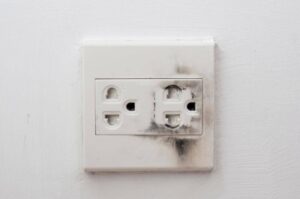From excited to prepared: Your ‘first home’ game plan

Purchasing your first home can be an exciting and meaningful milestone.
But amid all the anticipation, it’s easy to miss the crucial details that could impact your experience as a homeowner. Before sealing the deal, take the time to thoroughly inspect your prospective unit and review the terms of your purchase. From checking the physical condition of the space to understanding the developer’s turnover process, being informed at every step matters.
Having a well-prepared checklist can make all the difference. It helps you spot potential concerns early on, ask the right questions, and avoid surprises after move-in. More importantly, it ensures a smoother transition, so you can focus on what truly matters—making the most of your new home.

Make sure the unit is in top shape
You want to ensure that everything is functioning well, and that repairs would be covered if any issues arise. Keep an eye out on fixtures such as walls and ceilings, where you should look for cracks, leaks, or uneven paintwork.
Check the floors for scratches, dents, or tiles that might be loose. Try opening and closing the doors and windows. They should fit properly and lock securely.
Make sure to test the plumbing—faucets, showers, and toilets. Look for leaks, weak water pressure and proper drainage. Keep your nose out for unpleasant odors. You might want to bring a small appliance or charger to check if all the electrical outlets and switches work.
Check the ventilation as well, if there’s proper airflow especially in the kitchen and bathrooms. Ensure all installed lights turn on and off properly. And finally, open drawers, and cupboards to ensure they’re properly aligned and functional.


Keep an eye on red flags
These issues may not be obvious at first but can lead to major headaches later on. Doing your own research and asking the developer some questions may help you know more about potential concerns.
Check for “undisclosed damages” like cracks, leaks, faulty wiring, or pest infestation such as termites. Take time to look at government hazard maps to see if your home is built on flood prone or fault line areas.
Ask about all the monthly costs and fees in your future condo or village. It won’t hurt, too, to research the developer’s track record to avoid getting stuck in a never-ending construction project.


Prepare all necessary documents
Make sure to have personal identification and legal documents on hand to ensure a smooth transaction and proper documentation. Best to have valid government issued IDs like a national ID, passport, driver’s license, SSS, GSIS or a PRC ID. Make sure to have your taxpayer identification number (TIN) ready along with your BIR Form 1904.
Other documents include certificate of employment (COE) and payslips, as well as your marriage certificate (if applicable).
If you are planning to apply for a loan, banks may require more documents including bank statements, income tax return, certificate of loan eligibility and a credit report or statement of account.
Once everything is in order, don’t hesitate to ask for clarifications. Negotiate where possible, and keep copies of all signed documents for your records. Once the deal is sealed, enjoy the exciting journey of moving into your first home!
















